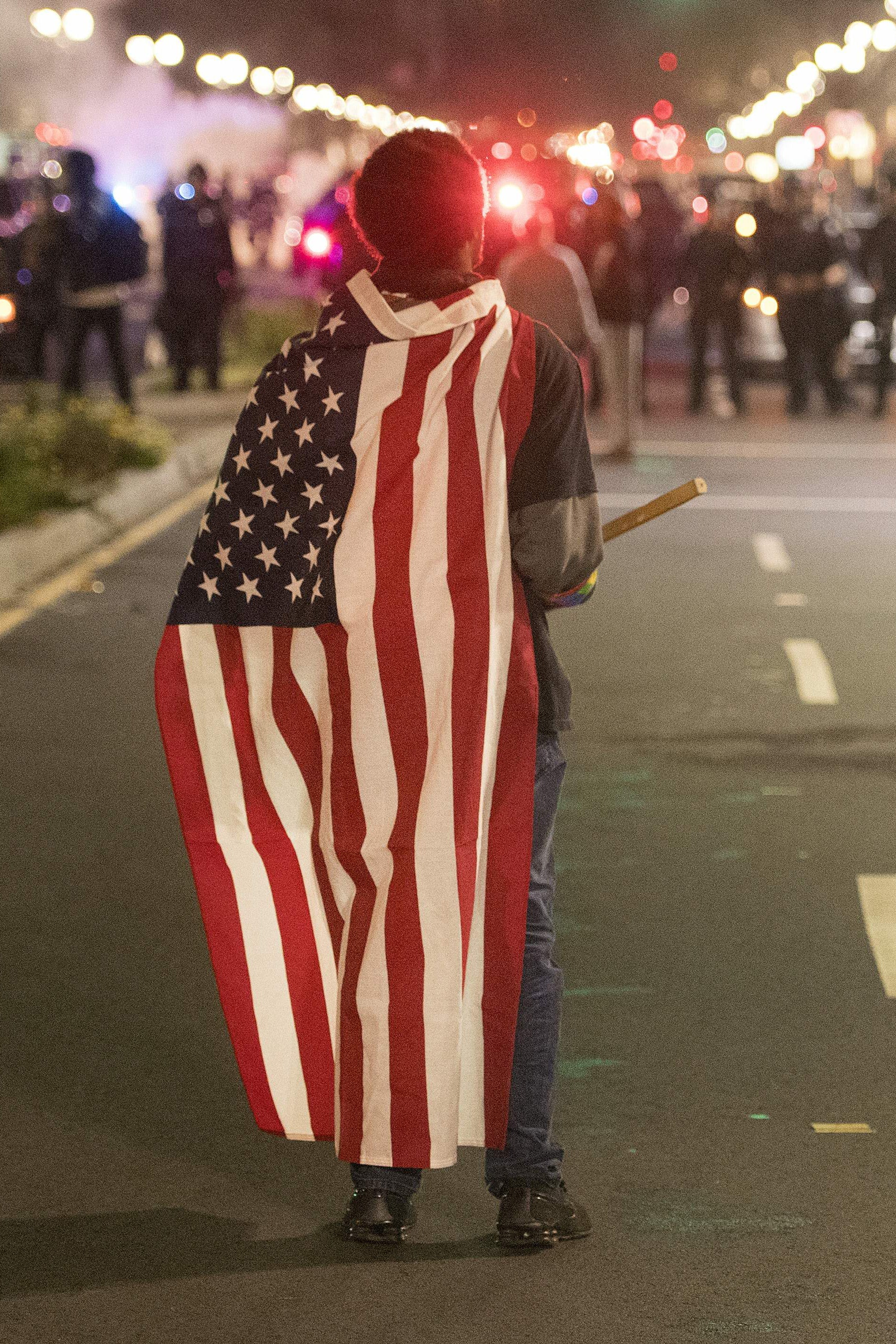
Filmmaker Ava DuVernay spoke truth to power in a room full of mostly wealthy Jewish liberals who sought her wisdom and honesty to give them hope in what is now considered Trump’s America.
Some defiantly wore “Hillary” buttons while others gnashed their teeth and wiped away tears. They had just screened DuVernay’s documentary 13th that Saturday afternoon at the Four Seasons in Beverly Hills. And because the film, which focuses on mass incarceration, foreshadowed our divided country’s frustration, hate and fear, many in the room figured she could say something, anything.
Thankfully, DuVernay resisted hubris. She’s an artist and a historian not a political pundit. But she did share advice from her own life and relied on statistics when she needed them. For instance, she addressed the fact that stocks for private prisons rose 50 percent the day after Donald Trump was elected.
Later, when one audience member asked what it would take to educate the Black community about the power of the ballot, DuVernay diplomatically explained that kind of edification goes beyond race.
“A lot of the major networks had exit polls and I remember one saying that 91 percent of college-educated Black women voted for Hillary Clinton and 95 percent of non-college educated Black women voted for her,” DuVernay said tactfully. “Compare that to the 52 percent of White women who voted for Donald Trump.”
But the vibe in the room was welcoming, not antagonistic. The audience overwhelmingly enjoyed the film, even if it opened their eyes and broke their hearts about America’s racist prison industrial complex. There was also a lot of talk regarding Oscar buzz as DuVernay shared the panel with rapper and actor Common, who wrote an original song for 13th. “Glory,” the song he co-wrote for DuVernay’s feature film Selma, earned him and John Legend Oscars.
Several members of the audience taught DuVernay a few Yiddish words to describe President-elect Trump such as “ameratsish,” which means “ignorant,” and a phrase or two that captures the feelings of post-election powerlessness and fear. DuVernay in turn taught the crowd the Black idiom “talking out the side of your neck,” which means to lie for effect.
Meanwhile, Common advised one millennial audience member to embrace the anger she and her friends feel about Trump in real life and on social media, but warned against wrath.
Subscribe to our daily newsletter for the latest in hair, beauty, style and celebrity news.
“It’s important to acknowledge that anger and deal with it like we should as individuals,” Common said. “But once you deal with that anger, you should come up with a positive solution to help lead people in the right direction. The one thing I love about what’s going on now is that we’re all leaders. Unfortunately, we don’t have a Martin Luther King Jr., to lead us. So you have to lead by rising above the anger and the negative energy.
“It’s empowering for us to discover what the solutions are,” Common added. “As down as we have been in this country this week, I think we’re all going to be activated to do positive things when dealing with a leader who’s not for everybody. Go back to the great advice from Michelle Obama: ‘When they go low, we go high.’”
Another audience member noted that DuVernay ended 13th with a montage of joyful photos of Black people enjoying their lives as the credits roll. This was not a coincidence, she said.
“Thank you for acknowledging that. We originally had a different ending where everyone says what they do over the credits,” DuVernay said. “I felt like it let the viewer off the hook. So I took it off and said, ‘No credits. It’s going to be black. Silence. So I just really started to think about it.”
The solution, DuVernay discovered, was using family photos from her relatives and friends as beacons of hopefulness. The same solution works in our post-election world.
“It is the idea of Black joy,” she said. “Not just Black joy, joy. The fact that through chaos and pain, there’s a place in all of us that even the most evil intention cannot touch. We’re connected with each other in our families – at graduations and basketball games and swim meets. Whatever it is, those things are not impacted by politics or who thinks our lives matter.
“Throughout the generations even during slavery, Black people have been able to find connections with each other and that helps us survive. That sequence is about joy, it’s about survival, it’s about hope.”
13th is now streaming on Netflix.




